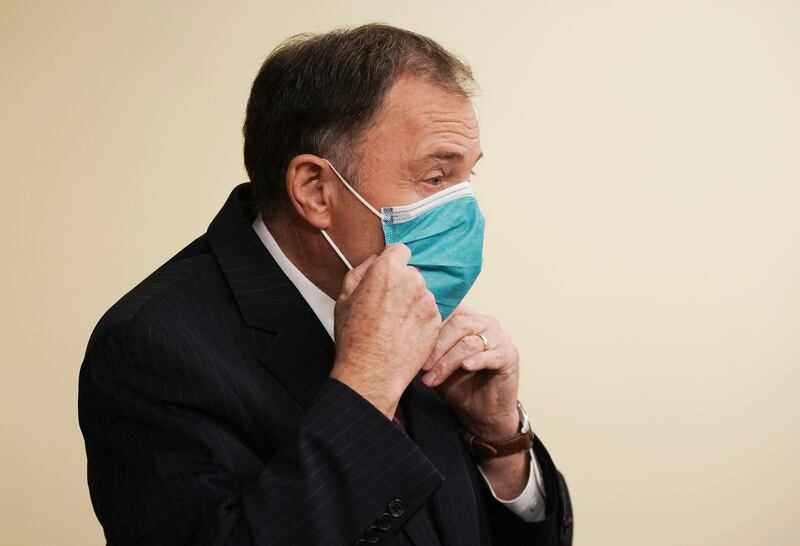Scientific evidence is accumulating in favor of mask-wearing as a strategy against the spread of COVID-19. One new study concludes that if 80% of Americans wore even simple cloth face coverings, infections would drop dramatically.
In light of this, the current political backlash against mask-wearing is not only destructive, it is ironic. Some people refuse to wear masks as a sign they want economic restrictions lifted. However, if 80% of Americans would don masks, the economy could recover faster and people could move about more freely.
Experts say you should look toward certain Asian populations for clear evidence of this. Perhaps the starkest example is Taiwan, a densely populated island. Its people are accustomed to wearing masks in public, and the island early on adopted a strategy of aggressive smart tracing and frequent temperature checks to go along with mask-wearing.
As of Monday, Taiwan had seen only 440 cases of COVID-19, with just seven deaths, or a rate of 0.3 per 1 million population, according to the website worldometer.info. Significantly, Taiwan kept its economy humming through the pandemic, avoiding a lockdown.
Densely populated Hong Kong has a death rate of 0.5 per million. Japan, another mask-wearing nation, has seen only 624 deaths, or a rate of 5 per 1 million population.
The U.S., by comparison, has a rate of 244 deaths per million and just passed 80,000 total deaths.
The study, to be released soon, used computer modeling to determine the effectiveness of mask-wearing, employing sophisticated programming that epidemiologists use to track the spread of pathogens. Researchers added artificial intelligence models to account for unpredictable human behavior and the effectiveness of various types of masks.
The study’s leader, De Kai of Berkeley, told Vanity Fair the models can simulate what happens to a population when confronted with COVID-19, both when no one wears a mask, and when any percentage of the population does. Without masks, the spread is quick. The same is true when only 30% to 40% wear them. But at 80%, the spread is contained.
Another study by Oregon Health & Science University, released last week, came to similar conclusions about mask-wearing.
As The Atlantic reported recently, research is clear that masks are effective in keeping people from infecting others, even if they are poor at preventing the virus from infecting the mask-wearer. This one-way barrier is vital. Reducing the droplets emitted from the mouth of a carrier is key to preventing the spread of the illness by as much as 99%.
This is important because people can be carriers of COVID-19 even if they have no symptoms. The Atlantic suggested visualizing the pandemic as a raging fire being spread by people breathing out invisible embers. A sneeze can spread the fire in multiple directions, casting sparks that ignite in others. Because the flames are invisible, and we can’t easily discern who is sick, everyone should wear a face covering of some sort, even if it is just cloth.
Unfortunately, the nation’s leaders have been inconsistent with this message. The White House has suggested everyone wear a mask, but President Trump and Vice President Mike Pence have at various times declined to do so in public. Americans also may be confused by initial statements from the Centers for Disease Control and Prevention that discounted the effectiveness of masks — statements that since have been reversed.
The scientific evidence is clear. If more Americans would wear masks, they could resume much of what might constitute normal behavior with a minimum fear of infection. This should not be a political issue. It should be a matter of common sense, and a strategy for bringing back jobs.

